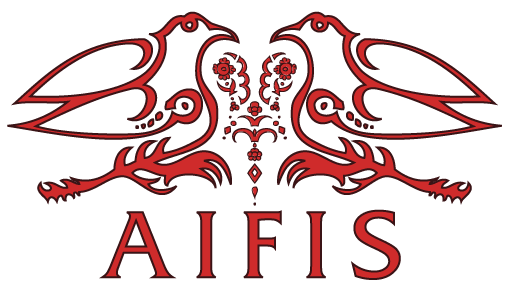©️ Background design provided for use by UPT. Museum Provinsi Kalimantan Barat
We are pleased to announce one of our esteemed keynote speakers for the 2023 AIFIS-MSU Conference on Indonesian Studies, Prof. Lorraine V. Aragon (University of North Carolina at Chapel Hill) who will share insights from her remarkable journey over two decades of collaborative and multidisciplinary scholarship in Indonesia. She will speak on the topic of "Researching the Promises and Dilemmas of Intellectual Property Law for Regional Arts" to discuss how the multiplicity of regional arts as they are practiced across Indonesia inform more nuanced understandings of intellectual property than are typically framed in international debates and national regulations. Read the full abstract below, and don't miss this extraordinary opportunity to learn from a visionary scholar reflecting on the dynamics of regional artistic and national legal authority in Indonesia!
Lorraine V. Aragon, “Researching the Promises and Dilemmas of Intellectual Property Law for Regional Arts”
Abstract: Indonesia’s development of intellectual property (IP) brings promises and dilemmas to the nation’s regions, with their varied ecologies, ethnicities, religions, and cultural practices. I have observed two decades of debates on Indonesia’s copyright laws, UNESCO heritage programs, and cultural property claims over “traditional cultural expressions” or “communal intellectual resources.” Working with a multi-disciplinary, multinational team, I examined how IP laws and discourses naturalize the idea that regional arts are owned exclusively by individual makers, businesses, the state, or by ethnic communities whose boundaries and custodians are not easily defined. The debates illuminate international pressures and promises for Indonesia’s “creative economy” as it expands beyond urban commercial and fine arts into the heart of regional cultural activities. In creative economy models, cultural difference is a branding and marketing strategy, not a facet of place- or people-oriented identities. The use-value of skilled arts where people do meaningful things together on significant occasions becomes less relevant. Producers working with creative economy initiatives hope their arts will gain increased appreciation and profits. But, legal measures to privatize, inventory, safeguard, and “improve” traditional arts can disrupt shared activities that are vital to community reciprocity and sustainable livelihoods. Regional arts, many tied to family and community gatherings, have evolved and spread by informal copying practices, and centuries of cross-cultural contacts. Traditional performances and graphic works are relational and religious in the original sense of enacting shared ties to past, present, and future others. By contrast, IP laws tend to abrogate local networks of authority and obligation in favor of individual, corporate, or governmental management. I unpack two black boxes that generally are overlooked by research on globalizing IP laws. The first is how and why many Indonesian regional arts endure, change, and flourish without formal law or exclusive claims of individual or group ownership. The second is how and why “intellectual property consciousness” and “cultural theft” rivalries now arise in places where they were absent. Like intellectual property, heritage is a modernist concern that promotes national and regional rivalries. Indeed, heritage is considered more valuable as lived traditions decline. Indonesia is following some familiar pathways to structure and supervise national culture and regional diversity, but also entering uncharted territory with formidable new laws and state inventories of hundreds of regional expressions. How can Indonesia rework IP laws and heritage programs for widespread benefit and protection from foreign “cultural theft,” while balancing layers of regional affinity, creative autonomy, and political scale? How can Indonesian and foreign scholars collaborate further across disciplinary and institutional divisions to help each other recognize their interconnected histories, laws, arts, and scholarship?

